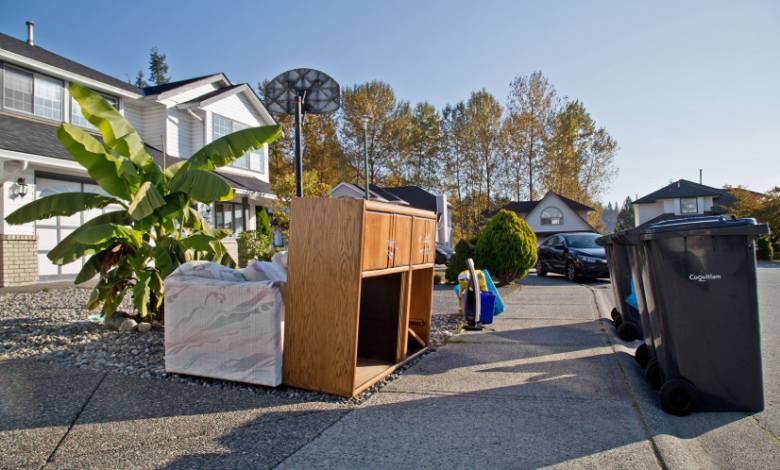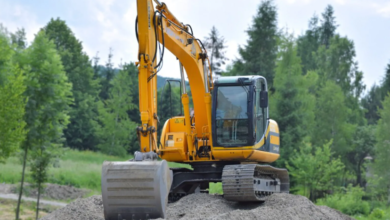Dump Near Me Open Today Hours and Guidelines

Finding a dump near you that is open and accessible is essential for proper waste disposal. Many communities offer designated landfills, recycling centers, and transfer stations with specific hours and guidelines. Knowing which locations are open and what materials they accept can save time and ensure waste is handled correctly.
Waste drop-off sites may have varying hours based on the day, holidays, or type of waste, such as household hazardous waste or electronics. They often require a motorized vehicle to access and may charge fees for certain types of garbage while recycling is usually free.
People looking for the nearest open dump should check local resources, as many cities provide updated hours and rules online. This guidance helps avoid unexpected closures and supports responsible disposal practices.
Finding a Dump Near Me Open
Locating an open dump requires specific information about local facilities, operating hours, and current availability. Knowing how to access and verify this information ensures efficient waste disposal without unexpected delays.
How to Search for Local Dump Facilities
To find a dump near me open, start with local government websites. Most cities or municipalities maintain waste management pages listing landfill locations, recycling centers, and transfer stations.
Private companies like Waste Management or regional providers may also offer online maps or directories of their drop-off sites.
Digital tools such as Google Maps can quickly highlight nearby dumps, but cross-check with official sources for accuracy. Pay attention to facility types—some sites accept household waste, while others focus on construction debris or hazardous materials.
Checking Opening Hours and Holiday Schedules
Dump operating hours vary by location and season, often changing on holidays. Municipal websites and company portals usually list regular hours and any holiday closures.
Some facilities have specific hours for certain waste types, such as electronic or hazardous waste, which differ from general waste hours.
Always verify hours close to your planned visit because temporary changes or maintenance closures may occur. Make note of any arrival time restrictions, especially if using motorized vehicles, as some places require specific loading guidelines.
Contacting Dumps for Real-Time Availability
Calling the facility directly is the most reliable way to confirm if a dump is open. Staff can provide updates on current wait times, accepted materials, fees, and any new restrictions.
Many dumps offer dedicated phone lines or customer service emails for inquiries. Larger landfill operators may also have social media or online live chat options to assist in real time.
This direct contact prevents wasted trips and ensures all disposal requirements are known beforehand, saving time and effort.
See also: It Managed Service Provider Near Me: Reliable Solutions for Your Business Needs
Tips for Visiting Dumps That Are Open
Knowing what materials are accepted, how to prepare your load, and understanding fees can make visiting an open dump smoother. Proper preparation saves time and avoids unexpected issues when dropping off waste.
Materials Accepted at Local Dumps
Local dumps typically accept household waste, yard debris, construction materials, and certain electronics. Hazardous waste like paint, chemicals, and batteries often require special handling and may only be accepted at designated times or separate facilities.
It is important to check the specific accepted materials on the dump’s website or contact them directly. Some locations have restrictions on tires, appliances, or large quantities of scrap metal. Materials must usually be sorted before arrival to prevent delays.
By confirming what is accepted, visitors avoid the inconvenience of turning away products and ensure compliance with local regulations.
Preparing Your Load for Quick Drop-Off
Efficient drop-off starts with sorting waste into categories such as recyclables, compostables, and general trash. Securely pack materials to prevent spillage during transport. Remove liquids from containers since many dumps prohibit liquid waste unless otherwise specified.
Transport tools like tarps or straps help keep your load stable. Labeling items by type can assist dump workers in directing you quickly to the correct disposal area.
Having a licensed vehicle is often required. Drivers should bring necessary identification or proof of residence if requested.
Proper preparation minimizes wait times and ensures a smooth process.
Understanding Fees and Payment Methods
Dump fees vary based on waste type, weight, and quantity. Many sites charge by the load or weigh incoming vehicles on scales. Some materials may be free or have separate fees, such as electronics or hazardous waste.
Common payment methods include cash, credit/debit cards, or electronic payments. Some facilities require payment upon entry, others on exit. It is advisable to confirm the accepted payment forms in advance.
Knowing fees beforehand helps avoid surprises. Visitors should also inquire about any discounts, such as for seniors or residents, to reduce costs.




